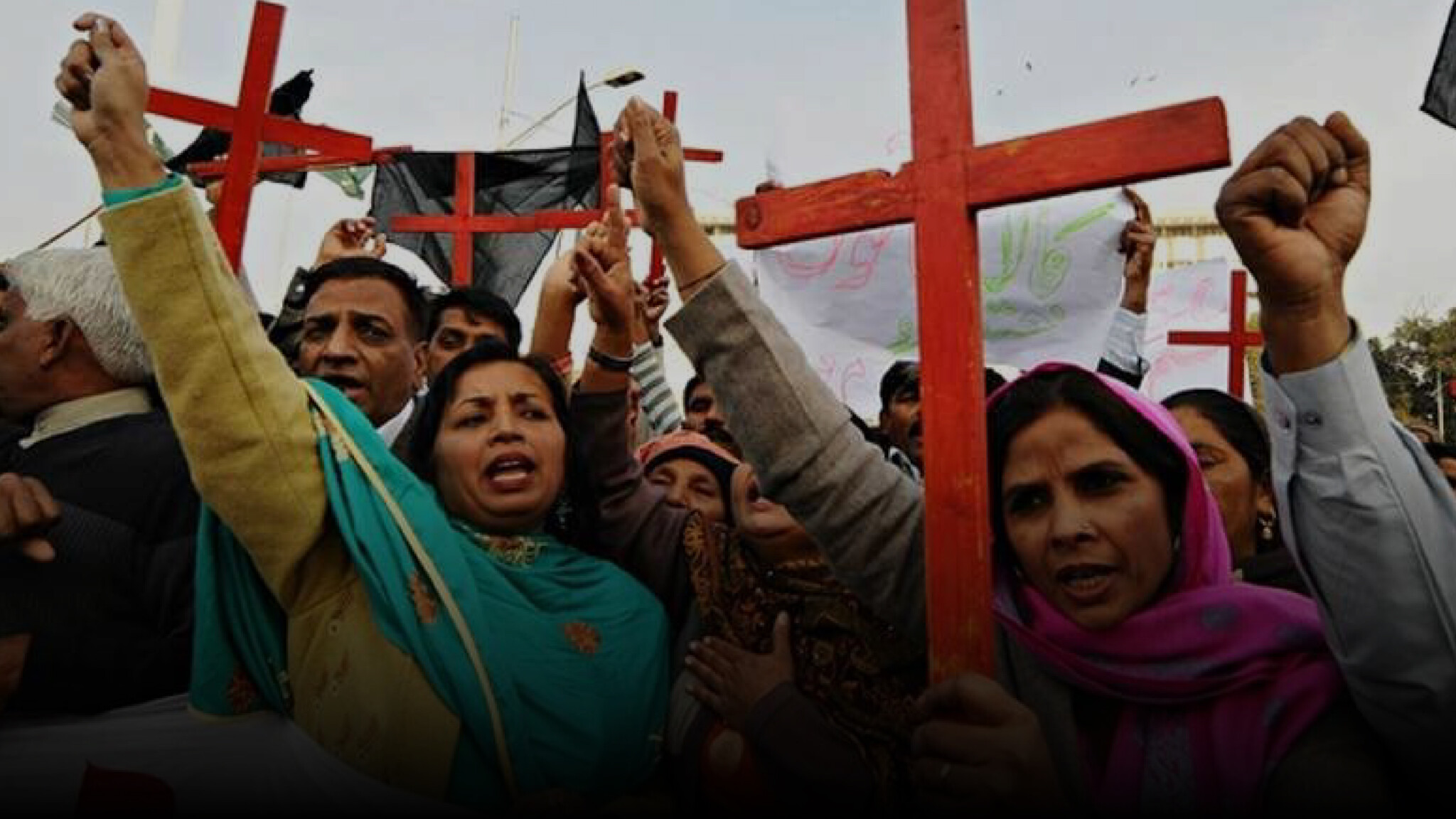
Christians are the forgotten victims of Indo-Pak conflict—targeted, silenced, and persecuted while Western media looks the other way.
After Pakistani militants attacked Indian-administered Kashmir in late April, gunning down 26 tourists and escalating a new series of offensives in the ongoing Indo-Pakistani conflict, media has drawn attention to the sectarian perspectives of Pakistani Muslims and Hindu nationalists in India, as well as more ameliorating voices in the region. The perspective of Christians in the region, however, has gone largely ignored. It is worth noting that Christians as well as Hindus were targeted for their ethno-religious status in the Kashmiri attack, and that this was by no means the first time that Christians were caught in the crossfire. Trends indicate that the scope and intensity of the persecution of Christians in the developing world, both by state and non-state actors (and often in tandem), are both worsening. During peacetime, Christians and other religious minorities may enjoy slight respite, but their suffering inevitably escalates with outbursts of sectarian conflict. Why, then, the silence from Western commentators?
About 1.3-1.6% of the Pakistani population is Christian, most of whom live in the province of Punjab. The vast majority of them are Dalit Christians, descended from lower-caste Hindus who converted in order to escape the caste system during the British Raj. Most are rural-dwelling, low-income workers, occupying low-status jobs and enduring associated prejudice and disfavor. Their status is doubly threatened: as both as religious minority and an ethnic identity which is considered low-status, Christians are frequently subjected to violence, with Islamic terror attacks often targeting their communities. Churches have been bombed regularly in the last ten years, and sporadically since Wahhabism began to exert its insidious influence in the region in the 1980s and 1990s; several attacks, like the Taliban’s Easter attack in Lahore, have left dozens dead and wounded at a time. Immolation a recurring feature of the attacks. These atrocities should be indelible in the memories of any humanitarian with an opinion about subcontinental politics – but little thought has been spared for Christians following the recent renewal of violence between India and Pakistan.
Enjoy independent, ad-free journalism - delivered to your inbox each week
As with any minority, Christian suffering is heightened during wartime: being an easy target, Pakistani Christians are caught in the crossfires during times of conflict between Hindus and Pakistani nationalists, with few people or organizations to advocate for them.
Accusations of blasphemy underscore much of the targeted persecution of Christians in Pakistan. While blasphemy laws ostensibly apply to all Pakistani citizens, despite making up 3.6% of the population, religious minorities like Christians account for 54% of all blasphemy accusations. Cases of individual persecution justified by accusations of blasphemy abound: blasphemy laws are not infrequently invoked in order to justify prejudicial vigilante violence, as in the case of Arshad Masih, a 32-year-old Christian stabbed to death by his Muslim coworker who then justified the killing by pointing out that Masih refused to convert to Islam. Other more sinister cases reveal the elements of uncontrollable mob violence and misogyny which accompanies such acts of murderous violence: Tabitha Nazir Gill, a Christian nurse, was falsely accused of committing blasphemy by a Muslim coworker, before being tied up by hospital staff and beaten and tortured before being taken into custody.
When diasporic Pakistanis – like Labour MP Tahir Ali – hint at the desirability of blasphemy laws on Western shores, the native population should be aware that such restrictions of speech typically do not serve to protect vulnerable communities, but to persecute those of Christian heritage.
Life for Christians in India is hardly perfect, either. In recent years, conditions for Christians have deteriorated as restrictions on religious freedoms for minorities, Muslims and Christians alike, generally diminish: in particular, “anti-conversion” laws disproportionally target Christians while ostensibly protecting people against forced conversions. The state’s overreach into the personal lives of religious minorities is stark: even inter-religious marriage is held as a form of forced conversion, a decision no doubt driven by India’s keen awareness of the threat posed by the ongoing conflict with Pakistani Muslim insurgents. Those deemed guilty of violating anti-conversion laws can receive sentences of 10 years in jail, and may even be punished with the death penalty in states like Madhya Pradesh, where Christians are only 0.27% of the population. In Uttar Pradesh, India’s most populous state, as many as hundreds of senior Catholic priests and pastors have been imprisoned for indefinite periods of time on charges of alleged forced conversion. UK Charity Open Doors (hyperlinked above) reports that in the area, “Christians live in fear” and live without privacy, given the willingness of the state to abuse its own laws, especially in times of escalated conflict.
In Uttar Pradesh, India’s most populous state, as many as hundreds of senior Catholic priests and pastors have been imprisoned for indefinite periods of time on charges of alleged forced conversion.
In reality, rather than being protected against forced conversion in India, many Christians are subjected to more ready vigilante violence by the emboldened Hindu majority: a quantitative study has found a direct relationship between the increased likelihood of prejudicial violence against Christians in Indian states and the enforcement of anti-conversion laws in those states. Most of this particular, legally permissible discrimination has taken place in the last decade.
Meanwhile, in Pakistan, anti-Christian persecution can take an uncomfortable mirror-image form: Christians have been fraudulently converted to Islam in attempts by Muslims to enslave them. 24-year-old brick kiln worker and Christian Safiyan Masih was registered as a Muslim by his employer who then claimed to “adopt” him, but withheld pay and prohibited him from returning to his family; he then faced the risk of punishment by death for apostasy after escaping and attempting to restore his Christian identity. Many others fail to escape enslavement, and may also fail to escape punishment for their Christian identity in the abusive National Identity Card system. In India and Pakistan alike, legal frameworks aid and abet the mass abuse of Christians. But British Parliamentarians, like Tahir Ali, and American Congresswomen, like Ilhan Omar, instead unquestioningly imbibe the delusional Western paranoia about global white Christian supremacy, calling for advocacy for Pakistani Muslims abroad and for the continued demonization of white men at home.
In Pakistan, anti-Christian persecution can take an uncomfortable mirror-image form: Christians have been fraudulently converted to Islam in attempts by Muslims to enslave them. 24-year-old brick kiln worker and Christian Safiyan Masih was registered as a Muslim by his employer who then claimed to “adopt” him, but withheld pay and prohibited him from returning to his family; he then faced the risk of punishment by death for apostasy after escaping and attempting to restore his Christian identity.
The Western press’ silence on Christian suffering is of no surprise; the plight of Christians in Nigeria, Egypt, China, and throughout the Middle East rarely makes headlines, even in the wake of extreme outbursts of violence against Christians – especially if perpetrated by Muslims and, even more crudely, by non-whites. That Christians suffer the bulk of religiously and ethnically motivated persecution throughout the developing world doesn’t suit the Western narrative that Muslims and people of color are sacralized victim groups, with white hegemony the main culprit of global violence – a belief which couldn’t be less accurate. At Courage.Media, the real global picture of anti-Christian prejudice, persecution, forced conversion, and genocide will not go ignored. Watch this space.




Comments (0)
Only supporting or founding members can comment on our articles.